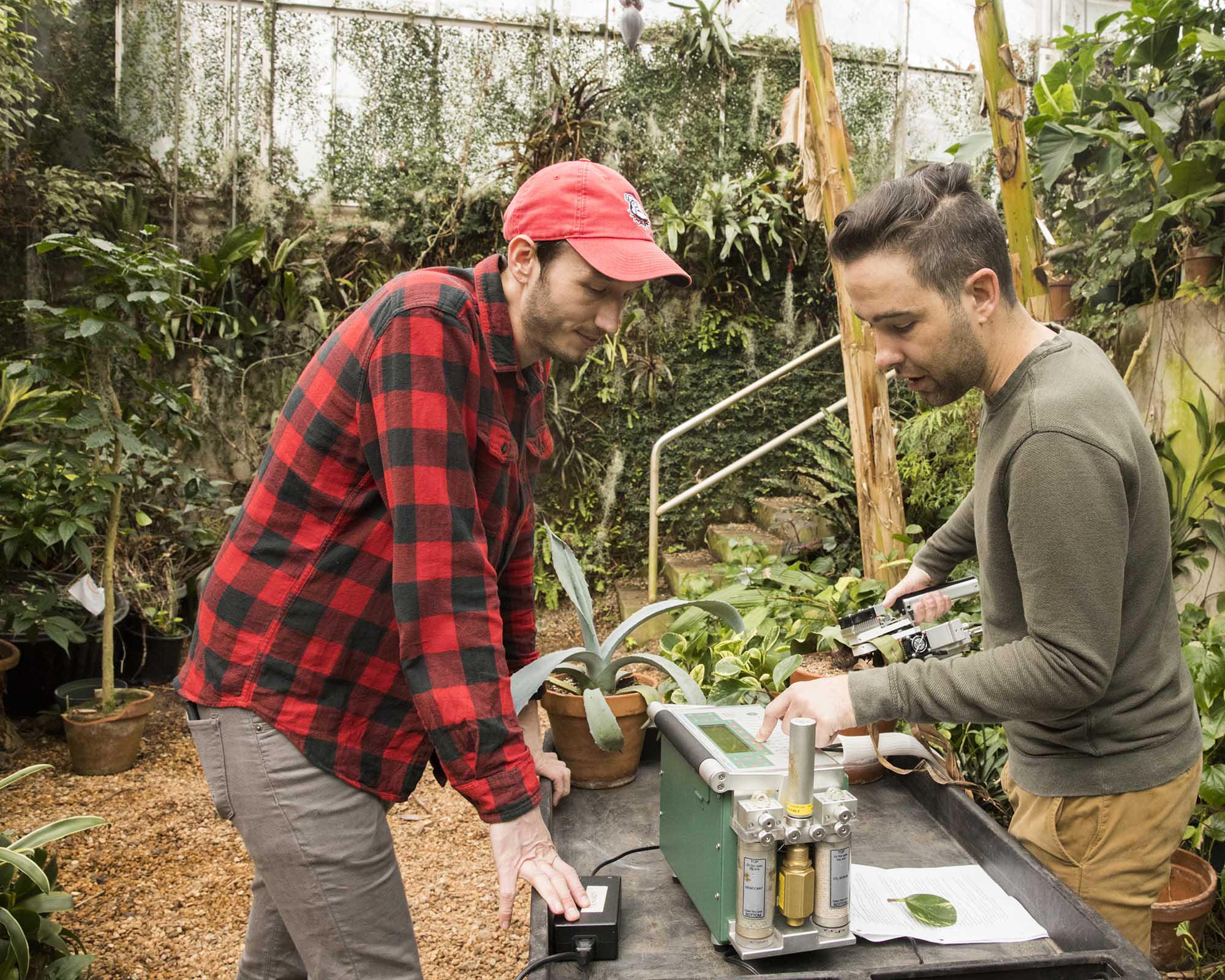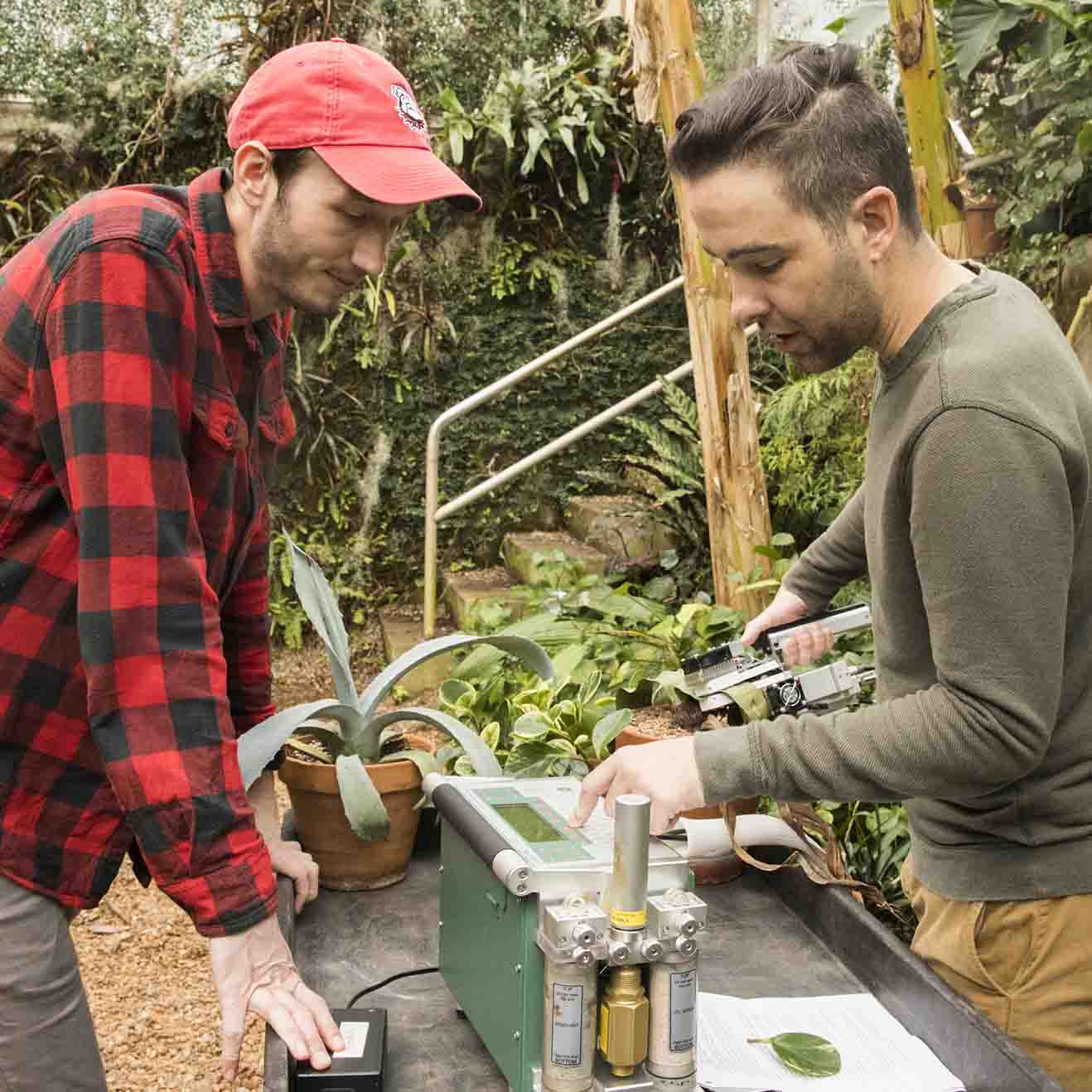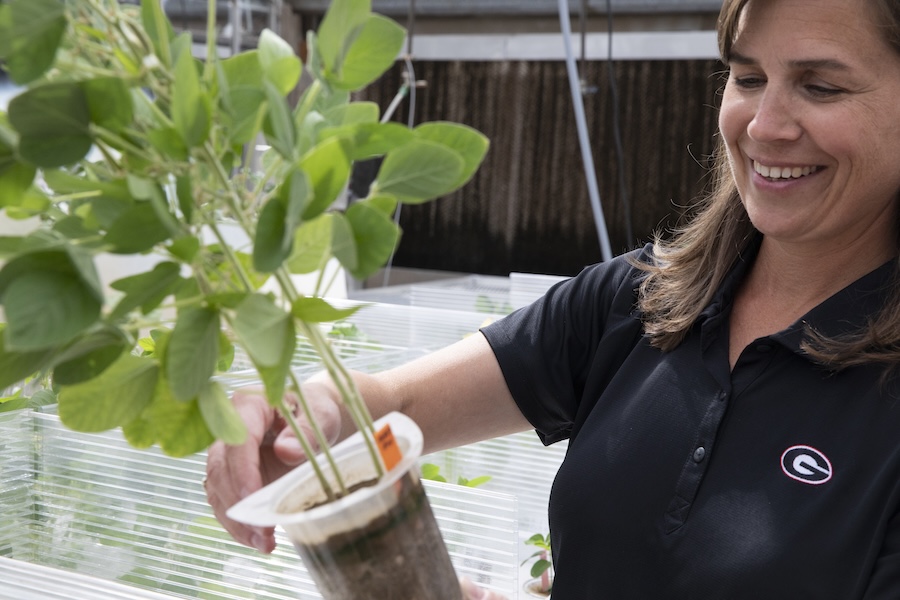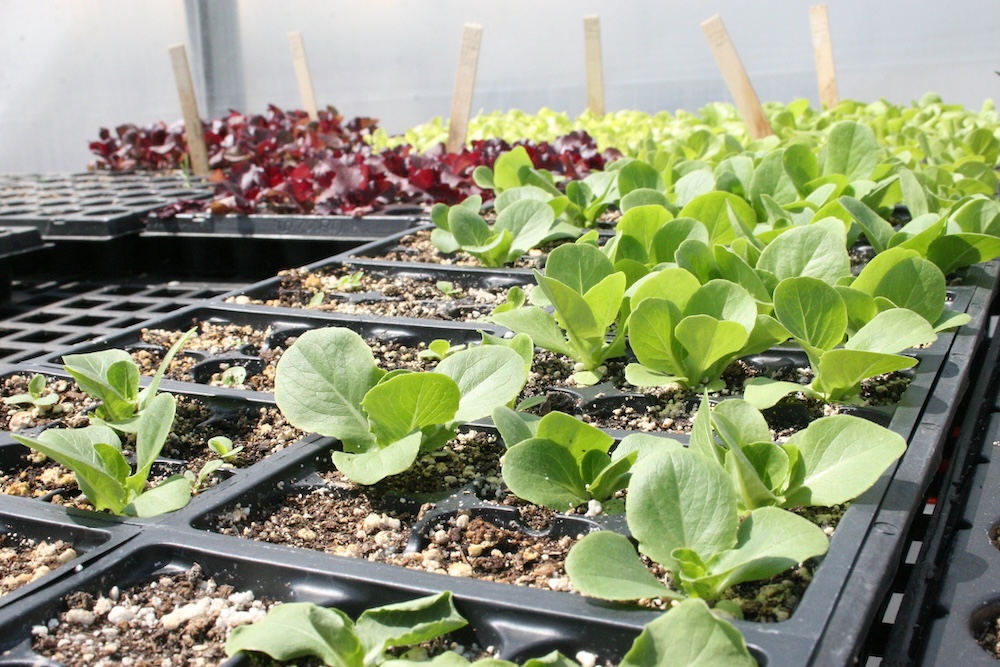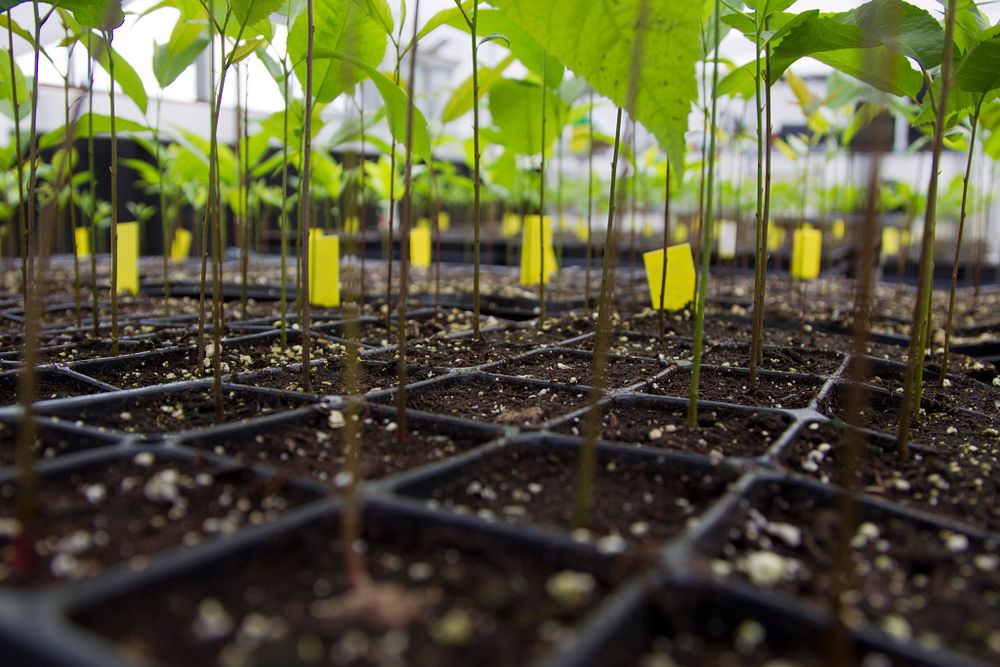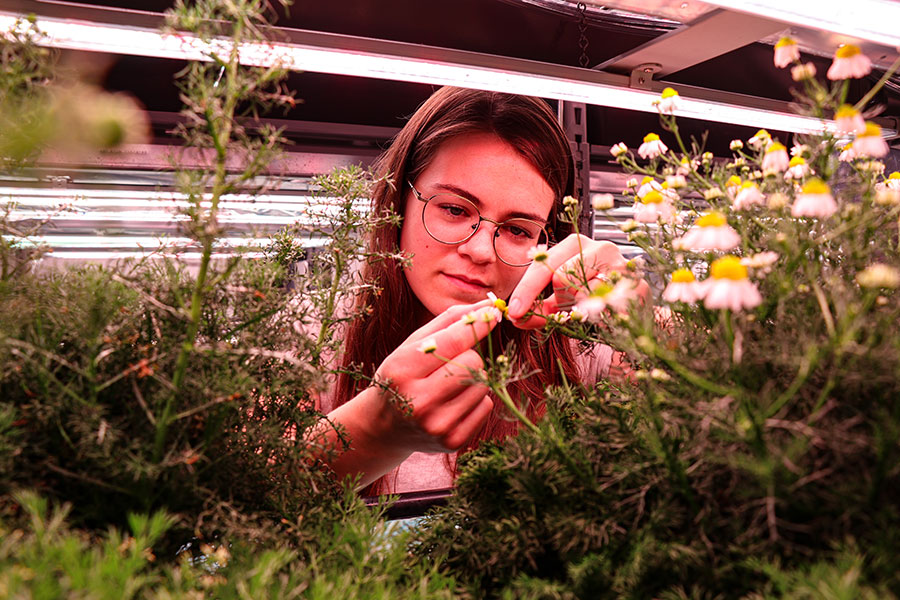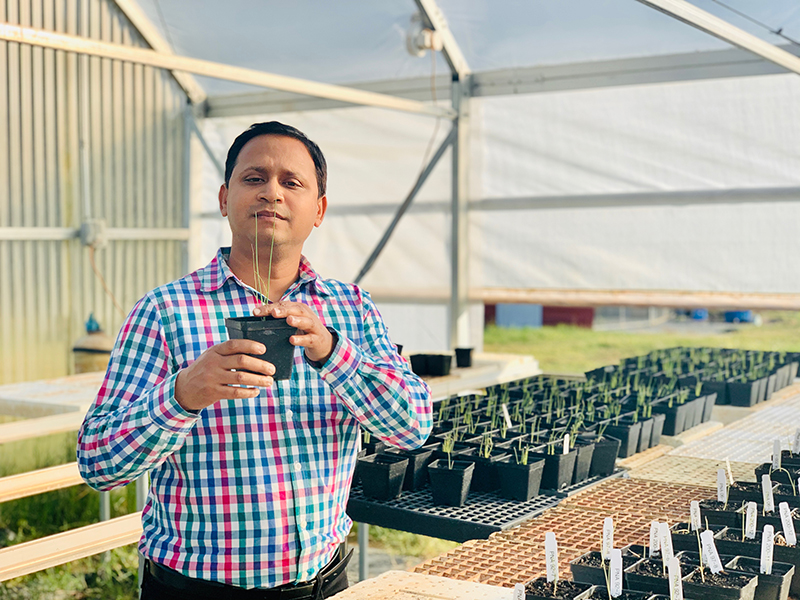For students with a penchant for plants and the desire to pursue a doctoral degree, the University of Georgia offers a collaborative program that spans a variety of cutting-edge and interdisciplinary plant science disciplines.
Spanning nine doctoral programs, the Integrated Plant Sciences (IPS) Program is a unique opportunity for graduate students to rotate through departments to meet faculty and other graduate students, allowing students to get a crash course in topics of interest through six-week rotations before ultimately selecting their advisor and degree program.
“Most students do not know at all what lab they’re going to join, and that’s completely expected. In fact, even if you think you know what lab you’re going to join, a lot of times students don’t join those labs, and that’s expected as well,” said Phillip Bentz, a 2019 IPS student who is a doctoral candidate in plant biology. Although he knew the lab he wanted to join, IPS helped him decide his doctoral program. “It was a hard time figuring out which one to join. It didn’t matter, I could have joined either plant biology or genetics and still done the same exact project, which I am doing. It’s on plants but there’s a lot of genetics involved. The interdisciplinary opportunities here are pretty large.”
Although the first program cohort enrolled in 2018, this relatively new initiative builds on the legacy of plant sciences at UGA. Nearly 60 faculty are part of the program and cover a wide range of research areas including biochemistry, bioinformatics, genetics, horticulture, forestry, microbiology, plant breeding, plant biology and plant pathology.
“IPS is the front door to these graduate programs,” said Distinguished Research Professor Wayne Parrott who serves as director of the program. “There’s a breadth and depth and IPS helps students choose the right one for their specific careers and desires, and UGA has a multitude of facilities to support them.”
Graduate students are supported with numerous campus resources including the Plant Center, a group of multidisciplinary faculty and students from the Franklin College of Arts and Sciences, College of Agricultural and Environmental Sciences, Odom School of Ecology, and Warnell School of Forestry and Natural Resources who come together to discuss their findings and fervor.
“I was initially drawn to UGA because of the Plant Center,” said Kelly Goode, a 2019 IPS participant and current graduate student in the Institute of Plant Breeding, Genetics and Genomics (IPBGG). “Even though I did work with molecular breeding at my undergrad institution, there was a disconnect between our group in the forestry department and the plant biology/genetics departments across campus. The Plant Center showed a priority in facilitating communication between different research groups.”
Students in the program are guaranteed to receive a competitive stipend for their first year and funding continues into successive years based on departmental funding available.
In addition to research techniques and plant science areas, IPS students gain professional development in analyzing literature, presenting and communicating research and data, and career planning.
“We’re looking for energetic and creative students with a deep sense of curiosity and accomplishment,” said Parrott, a faculty member in the Department of Crop and Soil Sciences and IPBGG.
Graduates of UGA plant sciences programs land in a variety of roles and locations including leading industry corporations, state and federal government agencies like the U.S. Department of Agriculture, nonprofits such as the Atlanta Botanical Gardens, and a variety of academic institutions including large public research universities to Ivy League schools.
“We didn’t get to be one of the top plant programs just because we have good faculty. We got there because of our great students, and we want to keep recruiting the best students there are,” Parrott said.
For more information on admission to the Integrated Plant Sciences Program, see ips.uga.edu.

